Today’s Current Affairs: 15th April 2024 for UPSC IAS exams, State PSC exams, SSC CGL, State SSC, RRB, Railways, Banking Exam & IBPS, etc
Table of Contents
Global Positioning System (GPS):
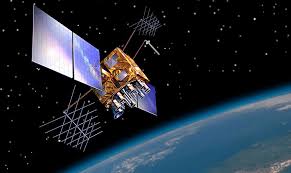
Cargo ships transiting the Mediterranean and the Black Sea are encountering a growing number of incidents related to GPS jamming.
- This trend has become more common since the Hamas attacks on Israel in October 2023.
- This situation is concerning, and some merchant ships have been additionally fitted with the GLONASS satellite system (Russian) as an emergency backup when onboard GPS systems (US) are jammed.
- The Global Positioning System (GPS) is a satellite-based navigation system that provides precise location and time information to users worldwide.
- GPS is owned by the United States government and operated by the United States Space Force.
- GPS consists of a constellation of satellites orbiting Earth. These satellites transmit signals that allow GPS receivers on the ground to calculate their position accurately.
- GPS technology is widely used for navigation, mapping, surveying, and various other applications.
- Satellite-based navigation systems, also known as satnav systems, utilize satellites to provide autonomous geo-positioning.
Time Standard For Moon:
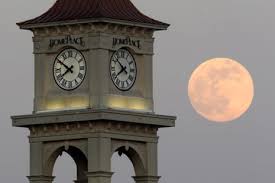
The United States officially directed the National Aeronautics and Space Administration (NASA) to create a time standard for the Moon, which different international bodies and private companies can use to coordinate their activities on the lunar surface.
- According to Reuters, the head of the White House Office of Science and Technology Policy (OSTP) told the space agency to work with other parts of the US government to finalise the strategy by the end of 2026 for establishing what it called a Coordinated Lunar Time (LTC).
- Most of the clocks and time zones are based on coordinated Universal Time (UTC), which is set by the International Bureau of Weights and Measures in Paris, France.
- UTC is essentially an internationally agreed upon standard for world time.
- It is tracked by a weighted average of more than 400 atomic clocks placed in different parts of the globe.
- If a country lies on the west of the Greenwich meridian, it has to subtract from the UTC, and if a country is located on the east of the meridian, it has to add.
- UTC cannot be used to determine time on the Moon because time on the Moon flows differently than it does on the Earth.
Mercenary Spyware: Apple

Apple issued threat notifications to iPhone users in India and 91 other countries, warning of potential attacks by mercenary spyware, including Israel’s Pegasus spyware.
- The notifications, sent via email, highlighted the possibility of specific targeting due to the user’s identity or activities.
- While Apple didn’t attribute the attack to any entity, it emphasized the seriousness of the warning and the rarity and sophistication of mercenary spyware attacks.
- Mercenary spyware refers to sophisticated surveillance software developed and sold by private companies to governments and other entities.
- Unlike traditional cybercriminal activities, mercenary spyware is often used for targeted surveillance, intelligence gathering, and espionage purposes.
- This type of spyware can infiltrate devices such as smartphones and computers, allowing the attacker to monitor communications, track location, access files, and gather sensitive information remotely.
- Mercenary spyware attacks are typically highly advanced and difficult to detect, posing significant threats to individual privacy, security, and human rights.
- Examples of mercenary spyware include Pegasus, developed by the NSO Group in Israel, which has been implicated in various surveillance scandals targeting journalists, activists, politicians, and other high-profile individuals worldwide.
India-Mauritius Tax Treaty:
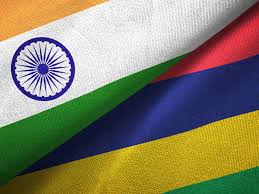
India and Mauritius amended their double taxation avoidance agreement (DTAA) to include a principal purpose test (PPT) aimed at curbing tax avoidance.
- However, the amended protocol has not been ratified or notified by the Income Tax Department.
- There were concerns that investments through Mauritius might face increased scrutiny by tax authorities, potentially affecting past investments as well.
- Double taxation occurs when the same income is taxed twice in two different jurisdictions before it becomes net income.
- To address this issue and encourage international economic activities, countries sign Double Taxation Avoidance Agreements (DTAAs).
- These agreements establish agreed-upon tax rates and jurisdictions for specific types of income received by tax residents of one country from another country.
- DTAA aims to prevent international double taxation and promote capital investment, trade, and economic activities between the signatory nations.
- The agreements may cover various categories of income, depending on the types of businesses and holdings citizens have in each other’s countries.
PACE Satellite:
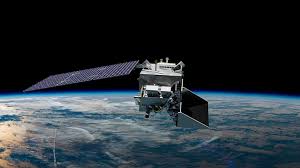
NASA is now publicly distributing science-quality data from its newest Earth-observing PACE satellite.
- The Plankton, Aerosol, Cloud, ocean Ecosystem (PACE) satellite is placed in Sun-synchronous orbit.
- The primary science instrument for PACE is the Ocean Colour Instrument(OCI) which is designed to measure the ocean’s colour across a spectrum from ultraviolet to shortwave infrared.
- It features two polarimeters – the Spectro-polarimeter for Planetary Exploration(SPEXone) and the Hyper Angular Research Polarimeter (HARP2).
- These two working together will offer complementary spectral and angular sampling, polarimetric accuracy, and spatial coverage.
- It aims to provide improved atmospheric correction and a comprehensive range of aerosol and cloud science data beyond what the OCI alone could achieve.
- The synergistic payload of OCI, SPEXone and HARP2 is poised to make significant breakthroughs in aerosol-cloud-ocean research.
- The OCI observes the ocean, land and atmosphere across a spectrum of ultraviolet, visible, and near infrared light. With this extensive spectral range, scientists can identify specific communities of phytoplankton.
- The data will allow researchers to study microscopic life in the ocean and particles in the air, advancing the understanding of issues including fisheries health, harmful algal blooms, air pollution, and wildfire smoke.
- With PACE, scientists also can investigate how the ocean and atmosphere interact with each other and are affected by a changing climate.
Kuchipudi : Struggle

Kuchipudi artists are struggling for survival and going through a tough phase due to lack of patronage.
- Kuchipudi is one of the Indian Classical dance belongs to the Andhra Pradesh.
- It was originally performed by a group of itinerant actors known as Bhagavathalu, who would travel from village to village, performing plays and dances based on Hindu mythology.
- In the 15th century, the great poet and musician, Siddhendra Yogi, played a major role in the development of Kuchipudi. He is credited with transforming the dance form from a simple folk art to a sophisticated and refined classical dance form.
- It is characterized by its intricate footwork, graceful movements and subtle facial expressions. It incorporates both pure dance (Nritta) and expressive dance (Nritya) elements, as well as storytelling through dance (Natya).
- It is also performed on the edge of a brass plate (known as Tarangam) on the beats of Carnatic music.
- It is largely developed as a Hindu god Krishna-oriented Vaishnavism tradition, and it is most closely related to Bhagavata Mela.
- The Kuchipudi performer apart from being a dancer and actor has to be skilled in Sanskrit and Telugu languages, music and manuscripts of the performance.
Global Forest Watch : Report
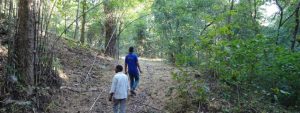
India has lost 2.33 million hectares of tree cover since 2000, according to the latest data from the Global Forest Watch monitoring project.
- Global Forest Watch (GFW) is an open-source web application to monitor global forests in near real-time using satellite data and other sources.
- It is a project of the Washington-based nonprofit research organization, the World Resources Institute (WRI).
Highlights of the GFW’s annual forest loss data.:
- The loss of primary forests–those untouched by people and sometimes known as old-growth forests – in the tropics declined 9% last year compared to 2022.
- The world last year lost about 37,000 square kilometers (14,000 square miles) of tropical primary forest, an area nearly as big as Switzerland.
- Brazil, the Democratic Republic of Congo, and Bolivia topped the ranking of tropical countries with the most primary forest losses.
- Deforestation globally rose by 3.2% in 2023.
- India has lost 2.33 million hectares of tree cover since 2000, equivalent to a six percent decrease in tree cover during this period.
- The country lost 4,14,000 hectares of humid primary forest (4.1 percent) from 2002 to 2023, making up 18 per cent of its total tree cover loss in the same period.
- Between 2001 and 2022, forests in India emitted 51 million tons of carbon dioxide equivalent a year and removed 141 million tons of carbon dioxide equivalent a year. This represents a net carbon sink of 89.9 million tons of carbon dioxide equivalent a year.
- An average of 51.0 million tons of carbon dioxide equivalent per year was released into the atmosphere as a result of tree cover loss in India.
- The data showed that 95 percent of the tree cover loss in India from 2013 to 2023 occurred within natural forests.
- The GFW data showed that five states accounted for 60 percent of all tree cover losses between 2001 and 2023.
- Assam had the maximum tree cover loss at 324,000 hectares, compared to an average of 66,600 hectares.
- Mizoram lost 312,000 hectares of tree cover, Arunachal Pradesh 262,000 hectares, Nagaland 259,000 hectares, and Manipur 240,000 hectares.
Financial Services Institutions Bureau:
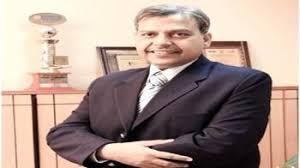
FSIB recently recommended the name of SIDBI Chairman and Managing Director.
- FSIB has recommended Manoj Mittal as the Chairman and Managing Director of Small Industries Development Bank of India (SIDBI) and Sanjay Shukla as the Managing Director of National Housing Bank (NHB).
Financial Services Institutions Bureau (FSIB):
- It’s a government body set up under the Department of Financial Services (DFS), Ministry of Finance.
- The primary role of FSIB is to identify manpower capabilities and ensure proper selection of talent for senior positions at financial institutions owned by the government.
- It replaced the Bank Board’s Bureau (BBB), which was declared an incompetent authority.
- FSIB would be headed by a chairman, a central government nominee.
- The board would comprise the Secretaries of the DFS, the chairman of IRDAI, and a deputy governor of the RBI.
- Additionally, it will have three part-time members who are experts in banking and three more from the insurance sector.
Fort Emmanuel:

Steps to conserve the laterite-brick remnants of Fort Emmanuel, that was built along the beachfront by the Portuguese in 1503.
- Fort Emmanuel is a ruined fort located at Fort Kochi Beach in Kochi, Kerala.
- It was originally built in 1503 and reinforced in 1538.
- It was a symbol of the strategic alliance between the Maharajah of Kochi and the Monarch of Portugal, after whom it was named.
- It was a massive structure, and the entire township was within its confines.
- It greatly helped in strengthening the Portuguese occupation of the area.
- Fort Kochi remained in Portuguese possession until 1683, when the Dutch colonial troops captured the territory and destroyed the Portuguese institutions.
- The Dutch held the fort in their possession until 1795, when the British took control by defeating the Dutch.
- By 1806, the Dutch, and later the British, had destroyed most of the fort walls and its bastions.
- Foreign control of Fort Kochi ended in 1947 with Indian independence.
- Now only the remains of this fort exist, reminding us of its historic significance.




